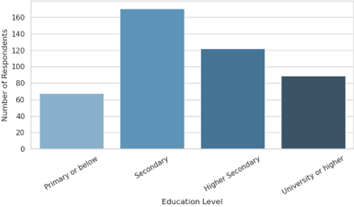Education and Women’s Empowerment in Pakistan: Exploring Autonomy, Mobility, and Economic Participation
Keywords:
Empowerment, Autonomy, Mobility, Economic Participation, Urban-Rural DisparitiesAbstract
Education is widely recognized as a critical driver of women’s empowerment, yet in many parts of Pakistan, socio-cultural constraints and structural barriers limit its effectiveness. This study investigates the relationship between women’s educational attainment and empowerment outcomes, focusing on decision-making autonomy, mobility, and economic participation. Using a mixed-methods approach, data were collected from 450 women across urban and rural areas through structured surveys and in-depth interviews. Results indicate a strong positive association between higher educational levels and empowerment scores. Women with university-level education reported greater autonomy, freedom of movement, and participation in economic activities compared to less educated women. However, qualitative findings reveal that cultural norms, family expectations, and rural residence often mediate the translation of education into practical empowerment. The study highlights significant urban–rural disparities and emphasizes that education, while necessary, is insufficient alone to achieve full empowerment. Policy implications include promoting female education alongside social and economic interventions to remove structural barriers, thereby enabling women to exercise agency and participate fully in society.

